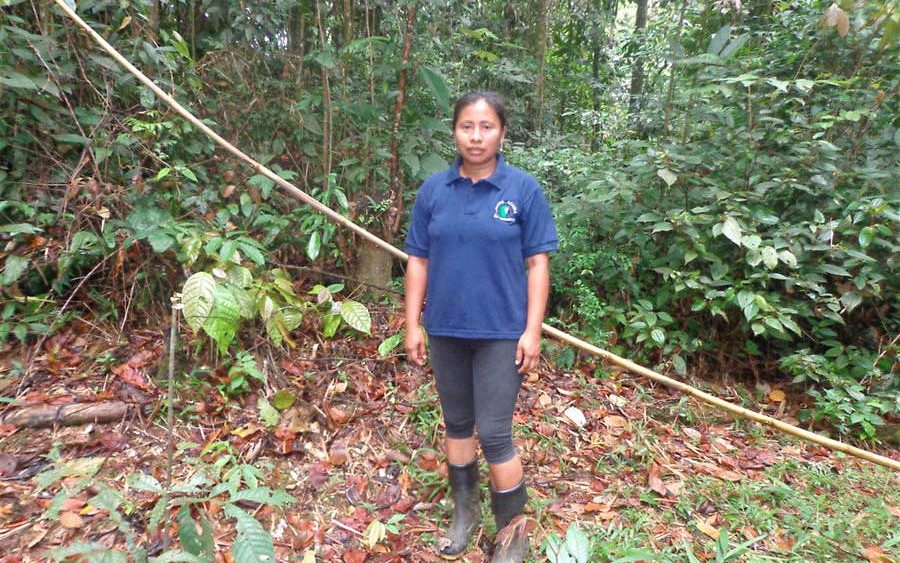Luzmila Huatatoca was born in Archidona, Napo province. Her family owns a reserve that they protect like their own lives. With their vision as indigenous peoples and nationalities of Ecuador, the division between human beings and the environment simply does not exist.
At 35, her life is intense. It involves forest patrols and meetings to motivate her community, especially women, to get involved in conserving their home, the forest. Her grandparents and parents were her greatest examples, and her grandparents strengthened her bond with the forest and the animals. She clearly remembers vacations with them, with her grandmother walking through the infinite jungle and her grandfather teaching her and her 10 siblings to recognize animals, plant yucca and bananas and take care of the forest.
They didn’t speak Spanish, so we learned all the names in the Kichwa language, she said. We heard about the “green macaw”, the “nina sigche”, the “sacha wakra”, the “alpine deer”, species that to this day are found in the reserve, but they struggle every day to prevent them from disappearing.
From her parents she learned day by day
importance of organization and participation

They established the Río Guacamayos organization in 1985, which was legally established in 2002. Luzmila followed her parents’ activities with interest, their participation in workshops and their desire to receive training from the Ministry of Environment. That was her main motivation for interacting directly with the organization.
She remembered that when the reserve was established, the main activity was to taking walks to take care of the forest and monitor entry by strangers. She went out on patrols, especially near the boundaries of the reserve. Although she has been president and treasurer of the organization at different times, what she has always enjoyed most is going out to monitor the forest and going to the fields because there can clear her mind, leave stress behind and breathe fresh air.
She proudly mentioned that the reserve is also monitored now by women. They learned to do so against the wishes of the men of their community, who said that they could get lost in the mountains and were not capable of being guides.
Luzmila acknowledged that over the past five years, the situation of women in her community has improved; there is less violence and less abuse, more openness to their participation and to the need to exercise their rights. However, machismo and jealousy still exist.

In 2009, the reserve joined Socio Bosque, an incentive program that recognizes the efforts of those who conserve forests in Ecuador. It was the first agreement Luzmila signed as a leader of her community, which led her to get involved in both the REDD+ National Committee in 2012 and the REDD+* Roundtable in 2015. This provided the opportunity to learn more about the national policy to combat change climate and opened the door to getting involved in other national and international forums. Her most recent trip was to Germany, where she participated in an exchange of experiences on REDD+ and Socio Bosque. Before that, she traveled to Peru to publicize the safeguards process.
Luzmila said that her colleagues are happy and support her participation because as a result they can learn about the actions the State and the organizations carry out to take care of forests, and be able to present their point of view on how the implementation of REDD+ is going in the field.
Personally, being a member of the REDD+ Roundtable helped my development a lot. I was very shy; now I feel safer, stronger and capable of discussing and contributing in other forums. Professionally, it taught me how to run an organization and handle administrative and technical issues and replicate everything I learned.



She got excited thinking about the possibility that other women in her community could learn and participate in processes such as the REDD+ Roundtable. She said that in the new term they will nominate other women, whom she is ready to support. Luzmila now sees more likelihood that her colleagues will get involved, although she notes that they will need to be strengthened and supported so that they can overcome their fear and know that they are always capable.

 Español
Español English
English

Comments are closed.